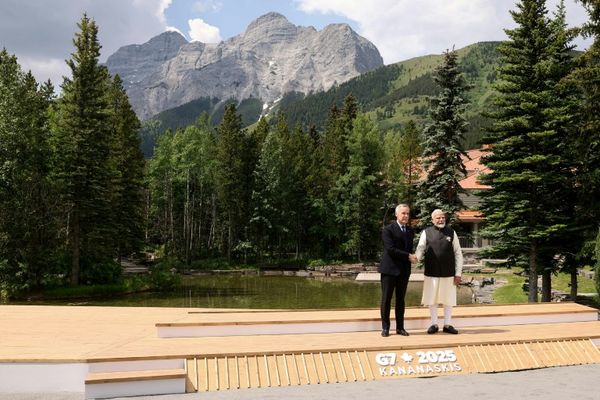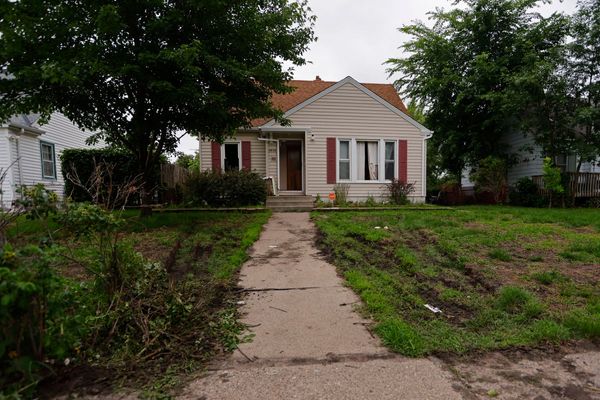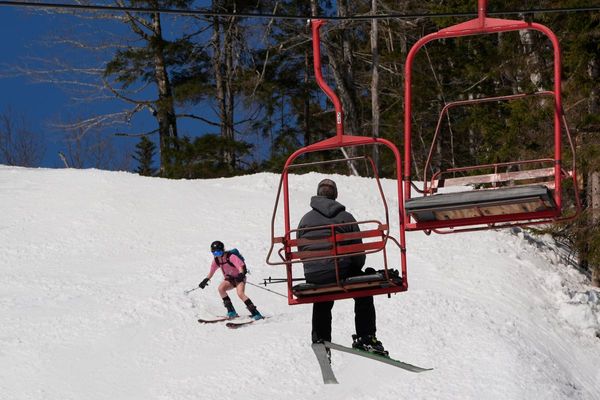
The candlelit vigils for Rolan Adams stopped seven years ago in Thamesmead. Ever since the 20th anniversary of his murder turned ugly, his family have felt unable to return to the south-east London street where the 15-year-old was fatally stabbed 27 years ago.
The last time they gathered at the murder scene, on 21 February 2001, they were pelted with abuse. Some passersby jeered and honked horns as the mourners prayed and laid wreaths. A McDonald’s milkshake was hurled towards them as they stood in quiet reflection.
“There’s still this little culture of overt racism in Thamesmead,” said Rolan’s father, Richard Adams, in the living room of his mid-terrace house in Southend.
Equally insulting was the no-show by local councillors and police who had been invited to the roadside vigil. “It would have been nice if we had some police protection.”

It is 27 years and two months since Rolan was fatally stabbed in the throat with a butterfly knife while waiting at a bus stop with his 14-year-old brother, Nathan. In a murder that had chilling similarities to the nearby killing of Stephen Lawrence 20 months later, the siblings had played table tennis and swapped records with school friends at the Hawksmoor youth club before the fatal blow. Rolan and Nathan were approached then chased by a gang of 15 white teenagers, some shouting “niggers”. Nathan managed to escape but returned to find his brother dying in a pool of blood, his table tennis bat at his side.
Rolan’s murder brought to a head simmering racial tensions on the south-east London streets of Eltham, Thamesmead and Welling. There had been a 140% increase in racist attacks since the BNP had moved its headquarters to nearby Bexley, anti-fascist groups reported at the time. Fifteen black families were driven out of their home on the Thamesmead estate in the year after Rolan’s killing. BNP stickers even appeared in the magistrates court where Rolan’s killer, the 19-year-old Mark Thornborrow, had first appeared.
Thornborrow was sentenced to life for murder and served 13 years. Four other men were found guilty only of public order offences and were given community service.
The US civil rights activist Al Sharpton flew to London for a memorial rally as protests over Rolan’s murder grew. A 17-year-old Lawrence was one of those at Sharpton’s rally, which was vilified on the front page of the Daily Mail as “Race preacher from hell comes to the UK”.
The 25th anniversary of Lawrence’s death on Sunday will focus the spotlight on race relations in today’s Britain. For Richard Adams, now 61, little has changed from the toxic days that claimed his son’s life. “We should never forget. We should never forgive,” he said. “I haven’t got the power to forgive them and I will never forget. I will never forget until I see that there is real repentance and atonement. There is none of that.”
What viewpoints do you think need to be heard that aren’t currently? Do you feel your community is represented? If you’re a young person, what’s your experience and are there changes you would you like to see?
You can share your views and experiences using our encrypted form here. We will use some of your responses in our reporting. Only the Guardian has access to your contributions.
The softly spoken father of three said he had made a “conscious decision to remain as angry as I can – a productive anger”. He is angry that only one young man was ever prosecuted for Rolan’s murder. He is angry at the “culture of denial” that has seen the killing airbrushed from history. And he is angry about today’s knife crime crisis, which he believes is a manifestation of the “targeting” of young black boys in the aftermath of the racist murders in the early 1990s.
“Who was protecting our young black boys?” he asked. “We tried our best to keep my surviving son, and all the other black boys and girls who were affected, from becoming [knife-carrying] perpetrators to protect themselves. Because of that lack of police protection they encouraged, inadvertently, young black boys to start carrying knives to protect themselves.”
Like the Lawrence family, Adams said he feels let down by the police, justice system and politicians. He said there was a reluctance to go after anyone else for Rolan’s murder. Out of the 15 white teenagers, only one was convicted of murder and four others were given community service for violent disorder. It has been suggested that some of the gang had known Lawrence’s killers, Adams said. A year later another teenager, Rohit Duggal, 15, was stabbed to death by a white teenager in the same area.
The relatively small number of prosecutions in the murders of Rolan, Rohit and Lawrence cuts into an open wound for Adams. “There was about 25 perpetrators in those three cases. Only four went to prison,” he said. “That’s where they could have started nipping this knife crime culture in the bud. Instead they created that vacuum where black boys needed to protect themselves.”

Despite some advances since the 1990s – the police, Crown Prosecution Service and politicians take racism “a little bit more seriously” – there remains a hidden culture of racism inBritain, Adams said. It is more “covert and sophisticated” than it was nearly 30 years ago, but it exists nonetheless.
His new home in the Essex town of Southend-on-Sea is barely 30 miles from the streets of Thamesmead, but it feels like a world away. For Adams, a member of the Windrush generation who arrived in Britain in 1964, even walking into a restaurant in a white area feels the same as it did half a century ago. “You get the stares. It’s exactly the same,” he said. “I’ve been in Britain now for 54 years and to be honest I feel exactly the same.”
Neville Lawrence this week said he had forgiven his son’s killers. But for Adams, whose anger and grief is undimmed after 27 years, it is more difficult to show clemency.
“You cannot forgive and forget until there is change and atonement for the distress – and the establishment has allowed them to do it,” he said. “It feels as though they understand it and condone it and connive in it. Otherwise it would be eradicated, not pushed under the carpet.
“Remember, that’s why you don’t hear nothing about my child dying. That’s why you don’t hear nothing about Rohit Duggal, Ruhullah Aramesh, all the others that have died before. It is this culture of suppression and I hope it goes away.”







